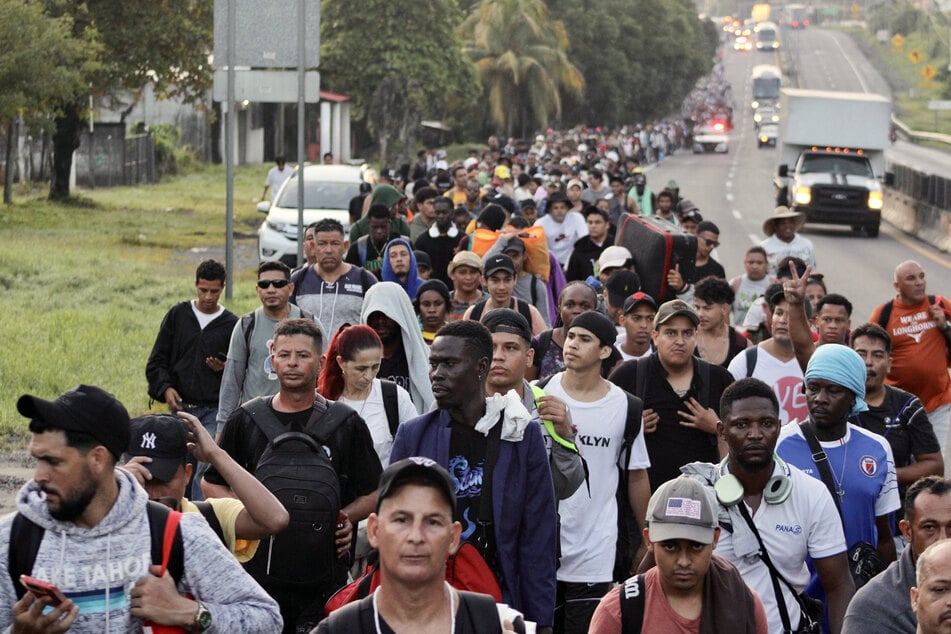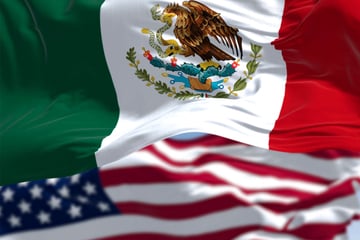Mexican border towns host thousands of stranded migrants amid Trump's crackdown
Tapachula, Mexico - Mexican border towns like Tapachula are straining under the weight of hundreds of thousands of migrants who have found themselves stranded amid President Donald Trump's aggressive crackdown.

Trump's immigration agenda has mounted huge pressure on border towns in Mexico, both on the country's northern border with the US and southern towns like Tapachula, which sits on the border with Guatemala.
It's estimated that since Trump's inauguration, about 300,000 migrants have found themselves stranded in Mexico, as their road north is blocked by increasingly restrictive border policies.
In Tapachula, massive migrant caravans have formed as stranded migrants travel hundreds of miles in search of safety and opportunity.
"The lack of infrastructure, employment, and services in Tapachula exacerbates the situation for people seeking safety," said Lucia Samayoa, Médecins Sans Frontières (MSF) coordinator in South Mexico.
"The city is not prepared to receive thousands of people for a prolonged period, which generates extreme vulnerability, leading many to live in overcrowded and informal shelters, sometimes in the open air."
MSF has warned that Tapachula has become a "city of waiting" where stranded people cannot access basic services, find accommodation, receive medical care, or work.
Stranded migrants struggle to receive basic necessities
Caravans provide comparable safety as migrants travel north, reducing risks associated with traveling alone. The conditions experienced, however, are brutal.
Trump's border policy is not the only thing contributing to this crisis, either, as his complete dismantling of the US Agency for International Development has gutted many of the humanitarian organizations that would have assisted migrants in Tapachula and across Mexico.
"Tapachula reflects the forced pause in the lives of thousands of people and families," said Samayoa. "We urgently need responses that match the human suffering experienced on the southern border."
Cover photo: AFP/Jose Torres
